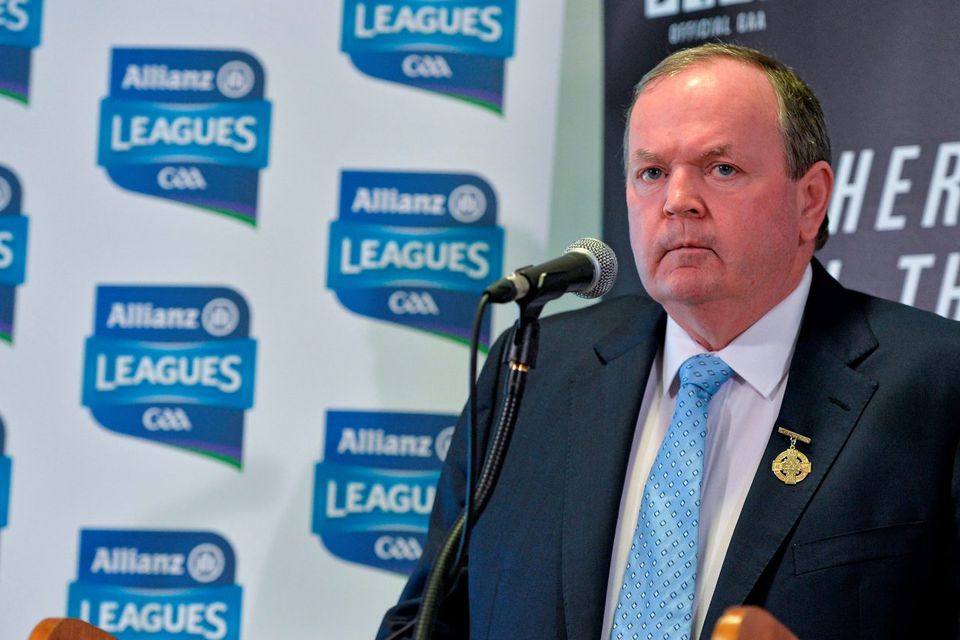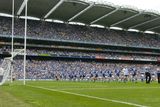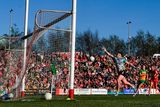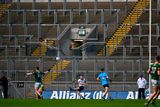GAA vow to roll out heavier bans for sectarian abusers
GAA president Liam O'Neill has outlined that a motion is to be brought to Congress seeking stiffer penalties for racial and sectarian abuse. Photo: Brendan Moran / SPORTSFILE
GAA president Liam O'Neill admitted yesterday that the Association's new rules which govern sectarian abuse, not yet 12 months in place, are already inadequate.
O'Neill made his comments at yesterday's Allianz Football League launch in Croke Park after the Ulster Council concluded the disciplinary process relating to comments directed at Monaghan's Drew Wylie in a McKenna Cup match against Cavan last week.
He expressed his regret, on behalf of the association, to Wylie, for what happened.
Cavan's Gearoid McKiernan has accepted a two-match suspension handed down to him by the provincial body and has conveyed a personal apology to Wylie, according to Ulster GAA president Martin McAviney.
But because of the terms of rule 7.2b Category IV (ix), which governs acts by deed, word or gesture of a racist, sectarian or anti-inclusion/diversity nature, the player has already served his suspension, missing his county's two remaining McKenna Cup games against Fermanagh and Tyrone.
Free
He is now free to play in the opening round of Division 2 next weekend.
The case has prompted the GAA to re-examine the rules regarding such comments, and O'Neill has revealed that a motion is being drafted to next month's Congress in Cavan to beef up the penalties for such remarks.
O'Neill said the Ulster Council dealt with the case according to the letter of the law.
"The rule at the moment is competition-specific and it's time-specific; the rule, as it is in the rule book, was applied perfectly by Ulster Council," said O'Neill.
"We now accept that it's not adequate. We thought it was adequate. It's not adequate, and what we're going to do is deal with it immediately.
"There will be a motion to Congress to strengthen that rule and increase the punishment."
The rules were changes at last year's Congress to make any such abuse of a racial, sectarian or anti-inclusion/diversity nature a red-card offence.
O'Neill has also said he would like to see any offending player or supporter compelled to undertake a programme on human relations to help with re-education on such matters.
"I feel that when players says something of this nature they should have to go on some sort of a programme, human relations or racial relations or whatever you'd call it, where they would learn how to behave towards other people," he said.
"I don't think it's acceptable that anybody should be abused in this manner. I think there should be a re-education process and we will be looking at that.
"I'm not quite sure yet whether we can enshrine that in law.
"We would also see a situation where, if supporters do it, we would like the unit which is responsible for the supporters to hold a course in their club to re-educate people."
O'Neill didn't want to speak on the penalty relating to the Wylie case specifically, except to convey a general apology to the Ballybay Pearse Brothers clubman, who is a member of the protestant community.
Abuse
"I'd like to say we abhor any form of abuse of our players, whether it be racial or sectarian or on body size or anything that somebody can't change," he said.
"Any insult like that is reprehensible. I'm delighted to get the opportunity to convey our regret to the player involved.
"It was beyond regrettable. We regret it terribly. The organisation is upset about it, I'm upset about it and, on behalf of the organisation, I would just like to say we're very, very sorry it happened to him. I was shocked, disappointed for him."
O'Neill said as an organisation the GAA couldn't cover any eventuality but the way McKiernan's match suspensions fell has served to expose the new rule.
"Even though we thought we had it covered, we hadn't and we're prepared to take immediate action," he said.
"I've often said that the mark of an organisation is how you deal with it when it happens. We had the rule, he was sent off correctly. We find out the rule wasn't adequate. We're quite prepared to immediately address that."















